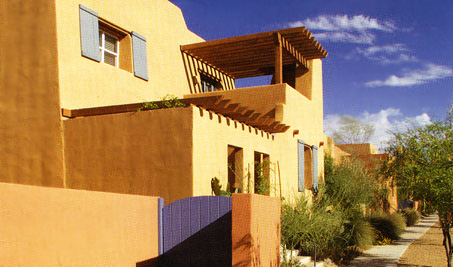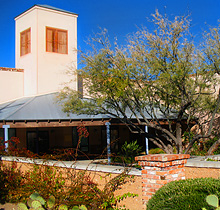Personal sustainability is impacted by the environment we're in, the community we share and our physical and spiritual balance.
— Kevin Kelly
Every development demands a unique sustainability approach to effectively balance the impact on consumer appeal and demand, financial considerations and overall effectiveness. Developers, investors and others that adopt a sustainable approach to business often experience reduced barriers to entitlement, find increased public acceptance and better staff satisfaction. Most importantly, by engendering brand loyalty and speaking, in relevant terms, to today's sophisticated consumer, these companies will enjoy improved demand and market pricing for their projects.
Civano Living can help your company develop its own sustainability "principles of change" within realistic timeframes and achievable benchmarks.
Civano Living defines its sustainable position as,
"Simultaneously considering the social, economic and environmental impact of every decision in an effort to find the equilibrium among these interdependent and at times, competing needs."

Community of Civano, Arizona
In residential and hospitality development a sustainable approach includes responsible land planning, appropriate construction materials and efficient energy envelopes, considering the source of labor and material, the project's lifecycle and overall impact on the larger community, maximizing the use of natural capital (such as thermal, solar and wind) where available, policies around fair-trade and fair labor practices, and developing systems where waste materials can be re-used as source materials. These objectives should not stand in contrast to other factors such as financial viability, aesthetic appeal, market competitiveness, technological efficiencies and the overall experience. In fact, when taken together, all of these factors should be viewed as complementary to one another and must be weighed in the context of how each contributes to the viability of a given project.
In addition to sustainability through design and construction practices,
Civano Living believes there is interplay between an individual's well-being, the impact generated from the built environment and our interdependency on natural systems. Over the last 30-40 years our society has moved from a modern to post-modern consumer culture. One of the attributes of a post-modern culture is the shift from specialization to a better understanding of how systems (man-made or natural) are interconnected and thus interdependent on one another. Expressions of this interconnected world view can be seen in the growing acceptance of the mind-body-spirit approach to health and wellness, the impact of an interdependent global economy, and calls for adopting sustainable protocols due to global warming. Many consumers believe the world's problems are complicated and interdependent. Therefore, we must adopt a more holistic, sustainable and environmentally friendly approach to our problem solving.

"Green" Manufacturing Buidling
embraces "The Hanover Principles" developed by William McDonough, FAIA for the 2000 World's Fair in Germany as working guidelines and design principles for a more sustainable world.
Civano Living encourages businesses to utilize and adopt the LEED Rating System and certification process for building construction and design. Created by the US Green Building Council, LEED provides specific benchmarks and guidelines for property development.
Civano Energy Innovation (CEI)
In addition to working to bring the first large scale sustainable development to fruition, Civano's sister company Civano Energy Innovation (CEI) is always looking at the latest technology that promotes sustainable energy and reduces our carbon footprint. One such product CEI, with patent pending, is the Civano Urban Turban™ wind generator. This technology provides a unique wind tracking device without any visible moving parts, providing for effective wind velocity. The prototype is in manufacturing and will be tested in urban locations in order to allow the generator to supply power to individual homes and commercial buildings and tie into existing energy grids.



